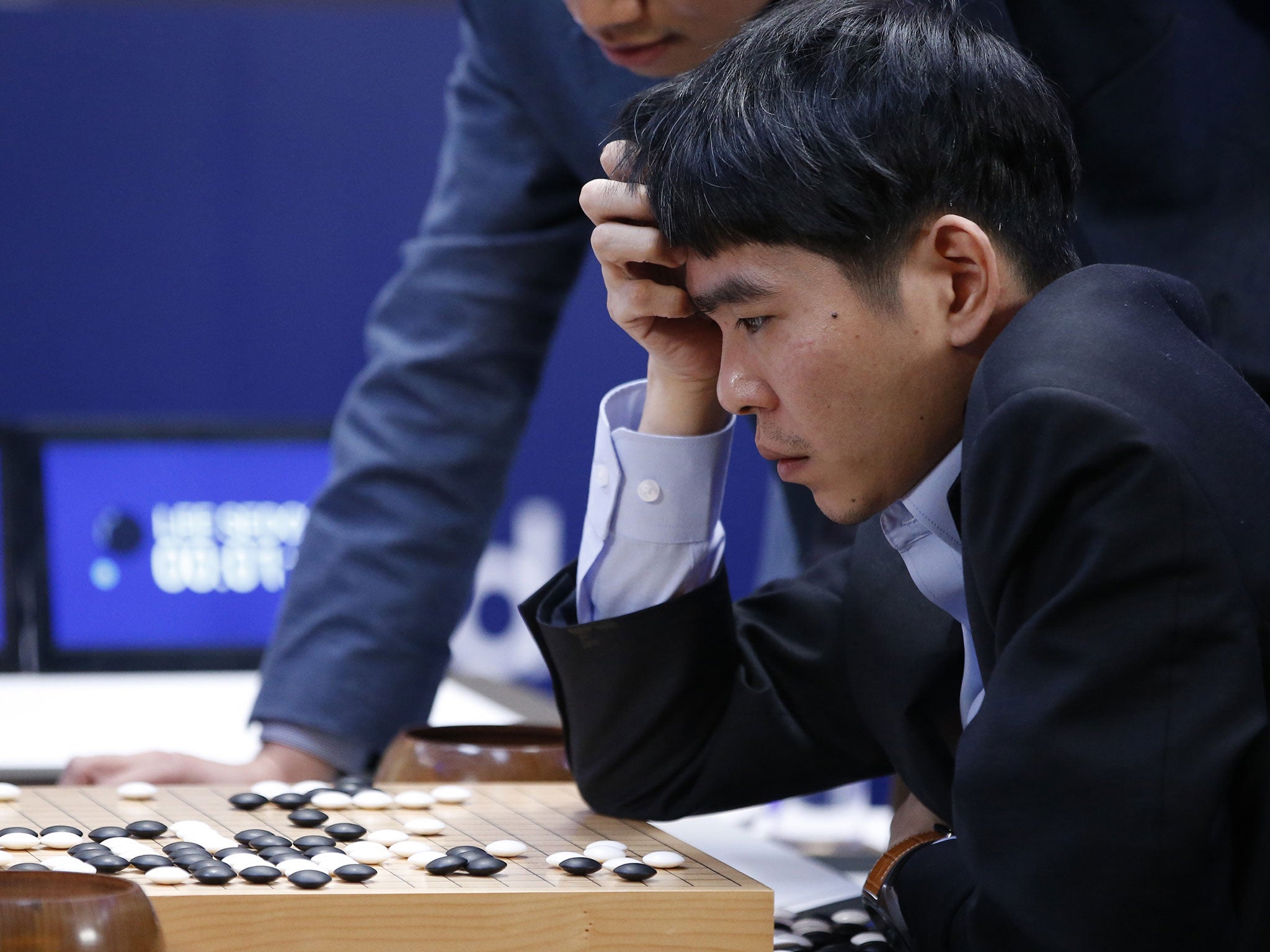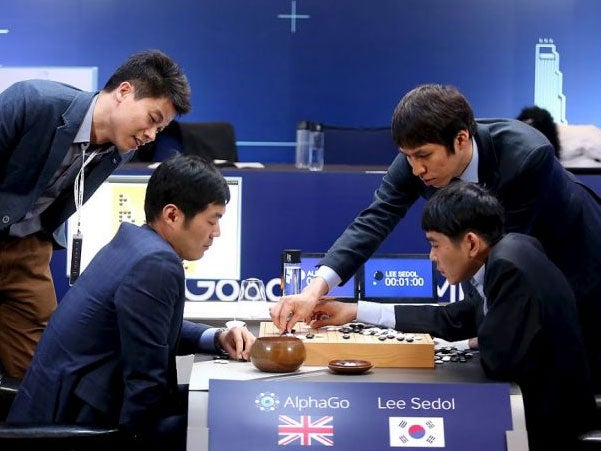Google DeepMind's AlphaGo computer beats top player Lee Sedol for third time to sweep competition
Many top players thought the computer displayed unorthodox moves

A Google computer programme has beaten a champion player of the board game "Go", in what has been called a landmark breakthrough for artificial intelligence.
Google's AlphaGo programme beat Lee Sedol - one of the world's best Go players - in a best of five competition for the third consecutive time in Seoul, South Korea on Saturday.
Mr Sedol had been confident he would win against the machine, with many believing the ancient Chinese game to be too complex for computers to master. Some believed it would be at least another decade before Computers would be able to beat human Go champions.
In the first game of the series AlphaGo won narrowly, with Mr Sedol ahead for much of the match, however the programme built up a strong lead later on.
Mr Sedol said he was "speechless" after losing the second match, adding AlphaGo had played a near-perfect game.

Two experts providing commentary for the third game said the match had been complex, they added that Mr Sedol had brought his "top game" but AlphaGo played with "great style".
Many top Go professionals commented that AlphaGo displayed unorthodox, questionable moves that initially befuddled humans but made sense in hindsight.
Kwon Kap-Yong, one of Mr Sedol's former coaches, told AFP: "AlphaGo played consistently from beginning to end, while Lee, as he is only human, showed some mental vulnerability".
Go is a Chinese two-player game believed to be around 3,000 years old, in which players take turns to put black or white stones on to a 19x19 grid. The winning player is the one able to surround their opponent’s pieces with their own.
Unlike chess, where a player typically has a choice of 20 moves, Go players have a choice of around 200. According to DeepMind, the British company owned by Google who developed AlphaGo, there are more possible positions in Go than atoms in the universe, the BBC reports.
DeepMind trained the machine to play 30 million expert moves, the machine then played against itself millions of times to perfect its technique.
Demis Hassabis, DeepMind's executive director, told the BBC: "It played itself, different versions of itself, millions and millions of times and each time got incrementally better - it learns from its mistakes."
Mr Sedol is set to face AlphaGo in two more highly anticipated showdowns between human and machine, today and on Tuesday, Sky News reports.
Additional reporting by Press Association
Join our commenting forum
Join thought-provoking conversations, follow other Independent readers and see their replies
Comments
Bookmark popover
Removed from bookmarks